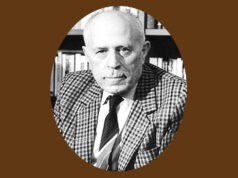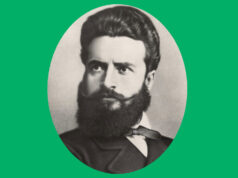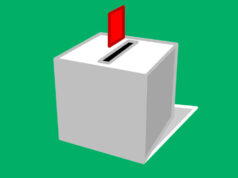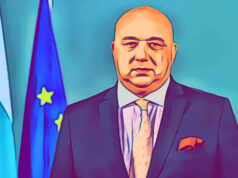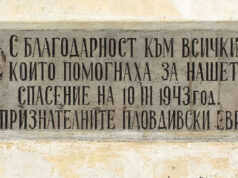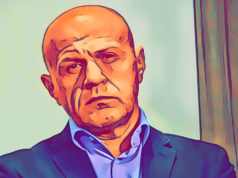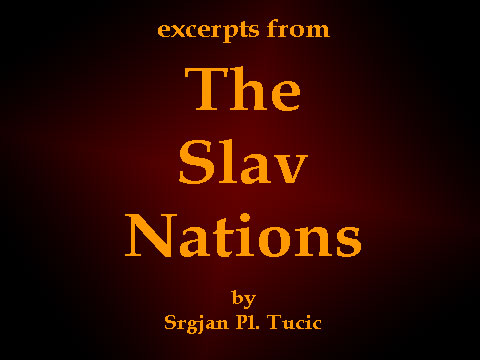 The following is an excerpt from The Slav Nations, by Srgjan Pl. Tucic, a Serbian author writing for an English audience in the early months of the First World War. The Slav Nations was a volume in the Daily Telegraph War Books series.
The following is an excerpt from The Slav Nations, by Srgjan Pl. Tucic, a Serbian author writing for an English audience in the early months of the First World War. The Slav Nations was a volume in the Daily Telegraph War Books series.
Bulgaria was freed from the Turkish yoke in 1878. The work of emancipation was carried out by Russia, with the help of Bulgarian bands and many volunteers from all the Slav countries. By the peace of San Stafano Bulgaria was de jure declared mistress of the entire territories from the Black Sea to Silistria, and along the Danube as far as Vidin in the north, from Vidin along the Morava via Ohrida as far as Yanina in the west, from Yanina via Salonika to Kavala in the south, and in a straight line from Kavala to Varna in the east. De facto she was only given independent jurisdiction over such territories as she possessed up to the first Balkan war. The complete liberation of Bulgaria was by no means achieved by the emancipation, and she continued to remain under Turkish suzerainty.
The first task after the emancipation was to reconstruct the country on the lines of a modern European state, and to infuse new life into it after so many centuries of Turkish misrule. Education was represented solely by the priests and the schoolmasters, who had labored for the enlightenment of the people even before the emancipation. Of course, there were a few Bulgarians who possessed a European education, and had graduated at European universities, and upon these devolved the task of solving the problems of the newly-created state. There were however so few of them that, at the beginning, many men of culture were imported from other Slav countries, chiefly Russia, Croatia and Bohemia. The military administration was entrusted to Russia, who established garrisons of her own in Bulgaria and undertook to create the Bulgarian army. Considering the transitionary stage of the country at the time, it was inevitable that the Russian military authorities should obtain considerable influence over the civil administration also, and that Bulgarian affairs fell under Russian influence from the beginning.
Prince Alexander of Battenberg, the first Bulgarian ruler, came to the throne under similar conditions as King Carol to the throne of Roumania. He was confronted with a superhuman task, and Bulgarian history can never deny the great service he rendered to the country. He came with a definite mission and set to work with the greatest possible zeal. He devoted his attention chiefly to the education of the people and to the army, and he found his most energetic ally in the people themselves. The prompt efficiency of the school system would have done credit to many a more modern state. The Bulgarians are intelligent, persevering, and fond of learning, and popular education made immense strides. At the present day the percentage of adult Bulgarians who cannot read and write is exceedingly small compared to most other countries – it is 21/2 percent of the adult population. The national system of compulsory education affected the very poorest peasants as well as the better classes. Before the foundation of secondary schools in the country large numbers of young men were sent to foreign secondary schools and universities, and every year yielded its quota of well-equipped youths capable of providing the motive power for the machinery of the State. Similar purposeful energy characterized the military organization, with the intention of forming an independent, purely Bulgarian army. For, in spite of his admiration for Russia and the Tsar Liberator, Prince Alexander felt that dependence on Russia – more especially a military dependence – would render his country a vassal de facto of Russia, no less than it was de jure already the vassal of Turkey. He therefore strove to render the Russian military administration superfluous in Bulgaria by building up an efficient home army.
As soon as this was accomplished he sent a letter of thanks to the Tsar, made a public manifesto, gave a big dinner to the Russian generals, and gratefully dismissed the Russian co-operation. Then the Russian generals had to leave Bulgaria. No one can deny that Prince Alexander showed himself manly and self-reliant in taking this decision, which was prompted by a very proper ambition. But he gave mortal offence in Russia, and from that moment he fell completely from Russian favour. The Court circles in St. Petersburg, which had been hostile to him from the beginning, now began to intrigue against him in Bulgaria, their efforts finding a ready response in the pro-Russian party. The first Serbian War in 1885 afforded splendid proof of Alexander’s military organization, but his influence was too far undermined, and even his victories failed to save him. The tide of adverse circumstances was too strong and led to the inevitable but, fortunately, bloodless coup d’état in 1886. Prince Alexander was taken from his palace by night, transported over the frontier and formally deposed.
Prince Alexander left Bulgaria a well-organized State, only disturbed by internal party hatreds. The new ruler, Prince Ferdinand of Coburg, was received with divided sympathies. Already in many ways his path had been smoothed for him, but he met with far more opposition from his own people than his predecessor, whom Russia had installed. In spite of all this, the machinery of State continued in the path of progress, the constitution of the country was established on a broad liberal basis, and the army increased in importance from year to year. With iron perseverance Bulgaria steadily advanced to take her place among modern states, and even succeeded in taking the lead in the Balkan question. The proclamation of Ferdinand as King of Bulgaria put an end once and for all to the shadow of Turkish suzerainty, and since then Bulgaria has been frankly acknowledged as a strong, free and independent State.
[ad#Google Adsense Bulstack 468×60 post banner]




